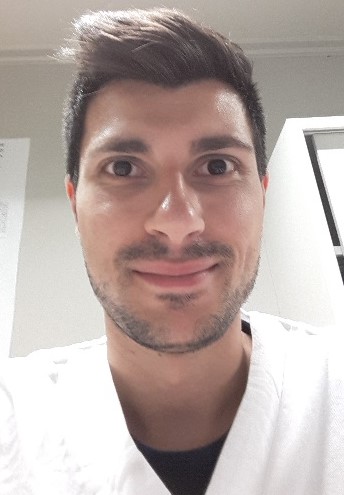 |
NICOLA MAFFEI
Docente a contratto
Dipartimento Chirurgico, Medico, Odontoiatrico e di Scienze Morfologiche con interesse Trapiantologico, Oncologico e di Medicina Rigenerativa
|
Home |
Curriculum(pdf) |
Didattica |
Pubblicazioni
2017
- Expert system classifier for adaptive radiation therapy in prostate cancer
[Articolo su rivista]
Guidi, Gabriele; Maffei, Nicola; Vecchi, Claudio; Gottardi, Giovanni; Ciarmatori, Alberto; Mistretta, Grazia Maria; Mazzeo, Ercole; Giacobazzi, Patrizia; Lohr, Frank; Costi, Tiziana
abstract
A classifier-based expert system was developed to compare delivered and planned radiation therapy in prostate cancer patients. Its aim is to automatically identify patients that can benefit from an adaptive treatment strategy. The study predominantly addresses dosimetric uncertainties and critical issues caused by motion of hollow organs. 1200 MVCT images of 38 prostate adenocarcinoma cases were analyzed. An automatic daily re-contouring of structures (i.e. rectum, bladder and femoral heads), rigid/deformable registration and dose warping was carried out to simulate dose and volume variations during therapy. Support vector machine, K-means clustering algorithms and similarity index analysis were used to create an unsupervised predictive tool to detect incorrect setup and/or morphological changes as a consequence of inadequate patient preparation due to stochastic physiological changes, supporting clinical decision-making. After training on a dataset that was considered sufficiently dosimetrically stable, the system identified two equally sized macro clusters with distinctly different volumetric and dosimetric baseline properties and defined thresholds for these two clusters. Application to the test cohort resulted in 25% of the patients located outside the two macro clusters thresholds and which were therefore suspected to be dosimetrically unstable. In these patients, over the treatment course, mean volumetric changes of 30 and 40% for rectum and bladder were detected which possibly represents values justifying adjustment of patient preparation, frequent re-planning or a plan-of-the-day strategy. Based on our research, by combining daily IGRT images with rigid/deformable registration and dose warping, it is possible to apply a machine learning approach to the clinical setting obtaining useful information for a decision regarding an individualized adaptive strategy. Especially for treatments influenced by the movement of hollow organs, this could reduce inadequate treatments and possibly reduce toxicity, thereby increasing overall RT efficacy.